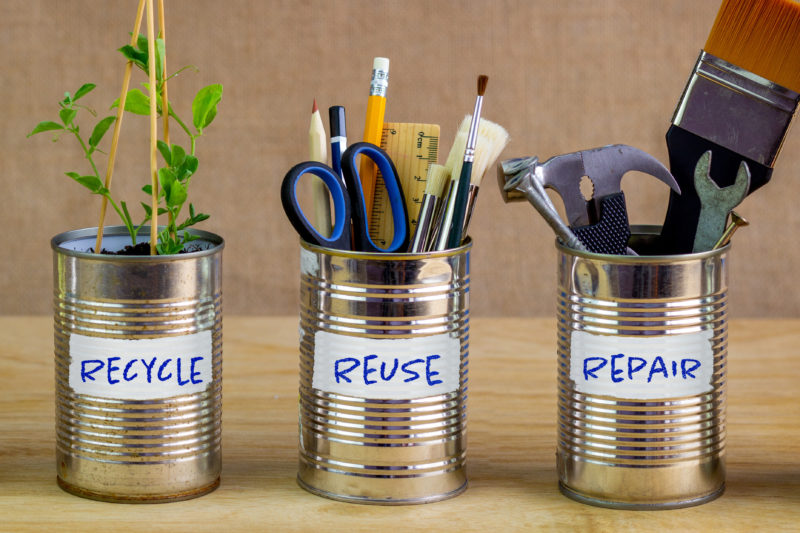
Image credit: Rejuvage.com
World Repair Day encourages us to rethink our consumption habits. In India, the movement to repair, reuse, recycle items is gaining momentum. This initiative promotes sustainability and reduces waste. With a population exceeding 1.4 billion, India faces significant waste management challenges. However, exciting changes are underway across the country.
Repair, Reuse, Recycle: Current Importance in India
The importance of repairing, reusing, and recycling has never been more critical in India. As urbanization accelerates, waste generation increases dramatically. According to recent studies, India generates over 150 million tonnes of construction and demolition (C&D) waste annually. A significant portion of this waste consists of items that could be repaired, reused or recycled instead of being discarded.
Embracing these practices can alleviate pressure on landfills and reduce environmental pollution. Moreover, India’s rich cultural heritage emphasizes resourcefulness and sustainability. By integrating traditional wisdom with modern practices, India can lead the way in promoting a circular economy.
Understanding the Importance of Repairing
Repairing items instead of discarding them is crucial for sustainability. Did you know that about 60% of urban waste consists of items that could be repaired? This staggering statistic highlights the need for a cultural shift. Repairing not only saves money but also conserves valuable resources. It’s time we embrace the idea that “one person’s trash can be another’s treasure.”
Community Initiatives Leading the Charge
In Bengaluru, the “Repair Maadi Bengaluru” initiative shines brightly. This program encourages residents to fix broken items rather than throw them away. Workshops teach skills like sewing, electronics repair, and furniture restoration. Participants learn practical skills while building community bonds. Over 500 residents have already engaged in this initiative since its launch.
The Role of Repair Cafés in Urban Areas
Repair cafés are popping up in various cities across India. These cafés offer tools and resources for people to mend their belongings. For example, a café in Mumbai hosts free workshops where individuals learn to fix their items alongside experts. This model fosters learning and reduces waste simultaneously. Plus, who doesn’t love a good cup of coffee while fixing that old toaster?
Educational Programs on Repair Skills
Schools and colleges are now incorporating repair skills into their curricula. Educational institutions organize workshops teaching students how to repair everyday items. This initiative instills a culture of sustainability from an early age. A recent survey revealed that 75% of students expressed interest in learning repair skills. Isn’t it inspiring to think about future generations embracing sustainability?
Government Support for Repair Initiatives
The Indian government recognizes the importance of repair culture as well. Recent policies promote the “Right to Repair,” encouraging manufacturers to design products that are easier to fix. This approach empowers consumers and reduces electronic waste significantly. In fact, several states are drafting legislation mandating companies provide spare parts for repairs.
Statistics Highlighting the Need for Change
Recent studies indicate that around 80% of electronic waste in India is improperly disposed of. This contributes significantly to environmental pollution. By promoting repair initiatives, we can mitigate this crisis effectively. Repairing products conserves resources and reduces carbon footprints linked to manufacturing new items.
Embracing Recycling Practices
Recycling is another essential aspect of sustainability in India. However, our country needs to have a comprehensive policy in place, especially with regards to plastic waste management. For instance, India recycles only about 8% of the 26,000 tonnes of plastic waste that is generated every day. The remaining plastic waste either reaches landfills or remains in natural habitats.
Based on projections, the global plastic production is set to increase threefold from 353 million tonnes in 2019 to 1,014 million tonnes by 2060. Moreover, since India is the third largest generator of plastic waste, behind only the US and EU, the urgency of recycling becomes all the more important.
Expert Opinions on Sustainability
Experts emphasize that embracing repair culture is essential for sustainability. According to Dr. Anjali Gupta, an environmental scientist, “Repairing items is not just about saving money; it’s about conserving resources.” Her insights highlight broader implications of adopting sustainable practices in our daily lives.
Rajesh Gupta, founder of Recyclekaro, emphasizes the critical role of repair, reuse, and recycling in managing India’s growing e-waste crisis. He states, “Repairing and recycling electronics is not just about reducing waste; it’s about reclaiming valuable resources.”
Local Success Stories Inspiring Change
Local businesses thrive by promoting repair services as well. Small workshops dedicated to fixing appliances have seen increased demand recently. Customers appreciate the cost-effectiveness and environmental benefits of repairing rather than replacing their items. One such workshop reported a 40% increase in customers over the past year due to rising awareness about sustainability.
Challenges Facing the Repair Movement
Despite its growth, the repair movement faces challenges too. Many people still prefer buying new items due to convenience or lack of awareness about repair options available to them. Additionally, some manufacturers resist making products easily repairable, prioritizing profit over sustainability.
Future Prospects for Repair Culture
Looking ahead, the future of repair culture in India appears promising indeed! With increasing awareness about sustainability, more people are likely to embrace repairing as a viable option moving forward. Community-driven initiatives will continue playing a significant role in this transition toward sustainable living.
Global Perspectives on Repair Culture
Globally, countries like Sweden and Germany set excellent examples by integrating repair into their cultural fabric. In Sweden, citizens actively participate in community repair events known as “fix-it clinics.” These events have inspired similar movements worldwide, including India’s own initiatives like “Repair Maadi Bengaluru.” Learning from these global examples can help India strengthen its own repair culture.
Conclusion: A Call for Holistic Change
World Repair Day serves as a reminder of our responsibility toward sustainability today! To create lasting change, we must incorporate holistic practices into our daily lives starting now! This includes supporting local repair initiatives and advocating for policies promoting the right to repair across all sectors.
In summary, repairing, reusing, and recycling items can significantly reduce waste while promoting sustainability in India overall! With various initiatives leading this charge forward together as one nation united by purpose—let’s join this movement today! Together we can create a circular economy benefiting both our communities and our planet!

Well written and the need of the hour article
Thank you, Subra!